If at first you don’t succeed, try and try again. That’s what I told myself when my Einkorn sourdough starter bit the dust a few weeks ago. I just restarted it and continued my quest to make sourdough bread using an Einkorn sourdough culture and Einkorn flour.
In this post, I’ll present Einkorn Sourdough Bread 3 Ways.
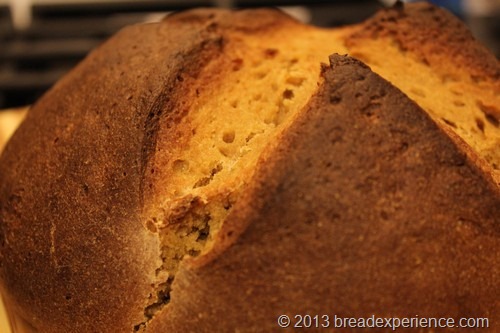
I’ve been experimenting with Einkorn sourdough for a couple of months. So far, I’ve baked three breads using the restarted Einkorn sourdough. Each bread has a different shape, but the formula is the same. Two of my attempts were successful, one not so much.
Einkorn Sourdough Bread 3 Ways
Makes: 1 Loaf
Refer to my original Einkorn Sourdough post for more info on making this bread.
Ingredients:
- 3 1/2 cups (390 g) whole grain Einkorn flour
- 1/2 cup + 2 T water
- 3 tbsp. (1 3/4 oz) honey
- 1 1/2 tsp. (3/8 oz) kosher salt
- 1/4 cup mature Einkorn Sourdough starter
As indicated, this dough makes enough for one loaf. I made it three different times and each time, I shaped the loaf into a different shape. I shaped one loaf into a boule (round ball), one into a Batard shape and the other batch of dough into what was supposed to be bread bowls but ended up like hockey pucks. The different shaping techniques are discussed in the directions below except for the bread bowls since they didn’t quite work out.
The first time I made this bread was in July 2012, before my starter bit the dust. I shaped the loaf into a regular loaf that time so I provided those directions as well in case you prefer to make the loaf in a loaf pan rather than freeform.
- Einkorn Boule
- Einkorn Batard
- Einkorn Hocky Pucks
- Einkorn Sandwich Loaf
Directions:
Step 1: Create the Sourdough Culture
Take 1/4 cup Einkorn sourdough starter and place it in a large bowl. Stir in 1/2 cup water and 1 cup einkorn flour. Mix with a Danish dough whisk until smooth. This will be your sourdough culture. Cover the bowl with plastic wrap and let the culture sit for 8-24 hours, until you are ready to bake. Place the remaining starter in a quart jar and put it in the refrigerator to use as your new einkorn starter.
Step 2: Mix the Dough
Remove the plastic wrap and add about 3 1/2 cups Einkorn flour, 1/2 cup + 1 –2 tablespoons water, 3 tablespoons honey and 1 1/2 teaspoons salt and mix with a Danish dough whisk until a dough forms and all the flour is absorbed.
Step 3: Knead the Dough
Transfer the dough to a lightly floured work surface and knead it for about 5 minutes or so until it is smooth and elastic. This dough is almost buttery. It’s much easier to work with this time.
Step 4: Bulk Fermentation
Place it in an oiled bowl. Cover the bowl with plastic wrap and let the dough proof until it is doubled in size, about 2 1/2 – 3 hours.
Step 5: Shape the Loaves
Shape the Boule. Transfer the dough to a lightly floured work surface, and shape it into a round ball. Place it on lightly oiled parchment paper and cover with plastic. Let it rest again until doubled in size, about 2-3 more hours.
Shape the Batard. Transfer the dough to a lightly floured or lightly oiled surface. I find that Einkorn dough works better with a little oil on the surface. Shape into a batard shape and place the loaf on parchment paper. As you can see, I reused my parchment paper.
For detailed instructions (including photos) on shaping a Batard, refer to the post on 66 Percent Sourdough Rye.
Shape the Loaf. Transfer the dough to a lightly floured work surface, and flatten it into a rough round. Fold the top and bottom edges toward the middle, like a letter, to evenly distribute the air pockets and help the bread rise evenly in the pan. Pinch the seams together. Place the dough seam side down in a greased 8” x 4 1/2 x 2 1/2” loaf pan. Recover with plastic and let it sit again until doubled in size, about 2-3 more hours. It is supposed to reach the top of the pan, but mine never did even after several hours.
Step 6: Prepare the Loaves for Baking. Preheat the oven to 425 degrees F. with a baking stone on the middle rack and a steam pan underneath.
Score the Boule. When the bulk fermentation is complete, score an X in the top of the loaf using a sharp knife or lame.
Score the Batard. Once the bulk fermentation is complete, make several 1/4-inch slashes in the loaf.
Score the Loaf. Lightly dust the top of the loaf with more einkorn flour and score it using a razor (lame) or serrated knife.
Step 7: Bake the Loaves
Slide the loaf (on the parchment paper) onto the preheated baking stone. Spray the walls with steam and pour 1 cup of hot water into the steam pan. Immediately turn the oven down to 375 degrees F. Bake the loaves on the preheated stone until nicely brown, about 30-40 minutes. Remove the parchment paper partway through the bake cycle to make sure the bottom of the loaf is baked completely.
Step 8: Cool and Serve the Loaves
Let the loaves cool on a wire rack before slicing and serving.
Here is a shot of the sliced Boule. It was a cute round little ball that really opened up during baking. These slices tasted great toasted with cheese.
This is Batard Shape. I brushed olive oil over it after it was finished baking. This was a beautiful loaf. I Really liked the batard shape for this dough. I’ll probably do that again. I forgot to take a photo of the crumb but it looked and tasted similar to the boule.
Here is Regular Loaf. You can read more about this bread in my original post.
Here are the hockey pucks. The main reason these didn’t turn out was because I decided to use some starter that had been sitting in the refrigerator and had not been fed recently. I wanted to test it. Guess what! It didn’t work. I think I also baked these rolls too long. I couldn’t even slice them to feed the birds. They were too hard.
Although the shape of the loaves were different, the flavor was pretty much the same each time. I said this the first time I made this bread, but it has a very unique and tangy sourdough flavor. It’s a very mature and distinctive flavor that goes well with cheese. This is not a fluffy bread and I like that! I hope you’ll try Einkorn sourdough bread sometime and let me know how you like it.
Happy Baking!
Cathy
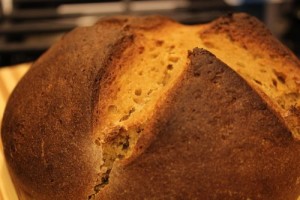
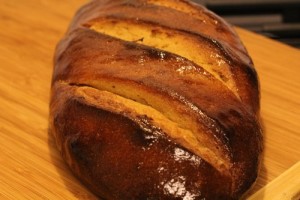
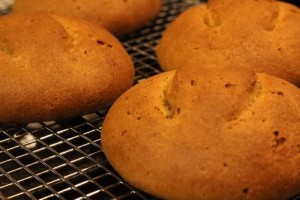
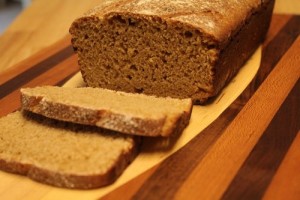
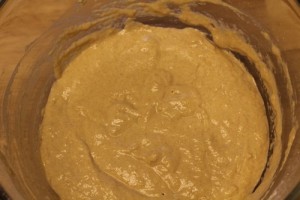
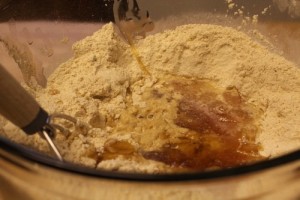
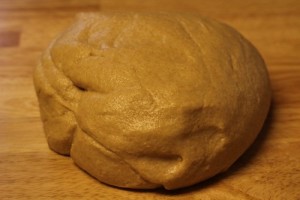
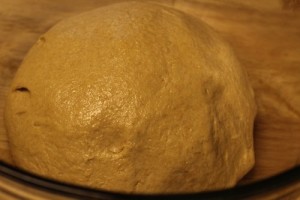
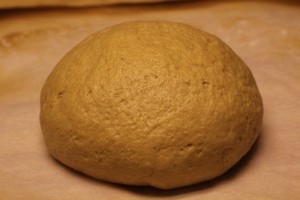
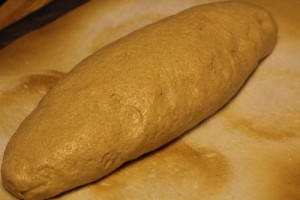
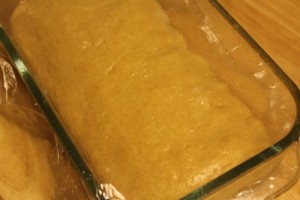
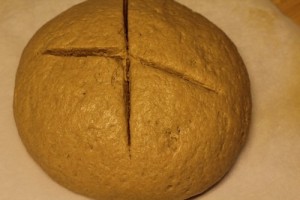
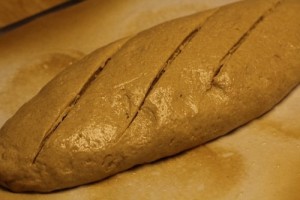
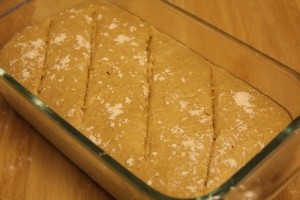
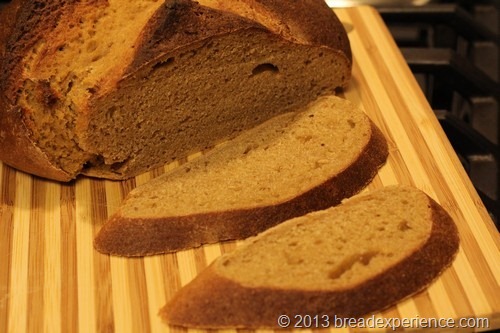
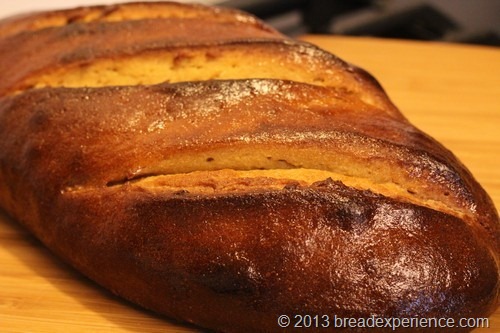
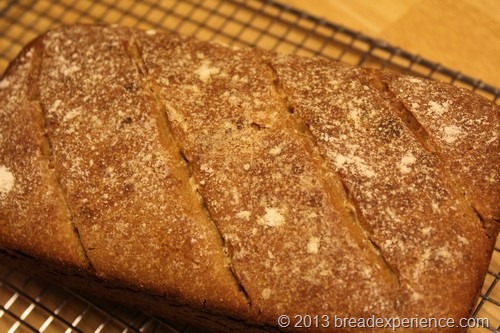
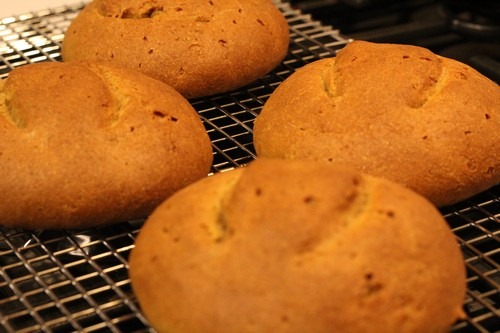
Joseph Finkelstein says
How many cups is your starter If I have a active culture already?
Cathy says
Joseph, for this loaf, you’ll use 1/4 cup of sourdough starter to make the overnight levain. Is that what you are asking?